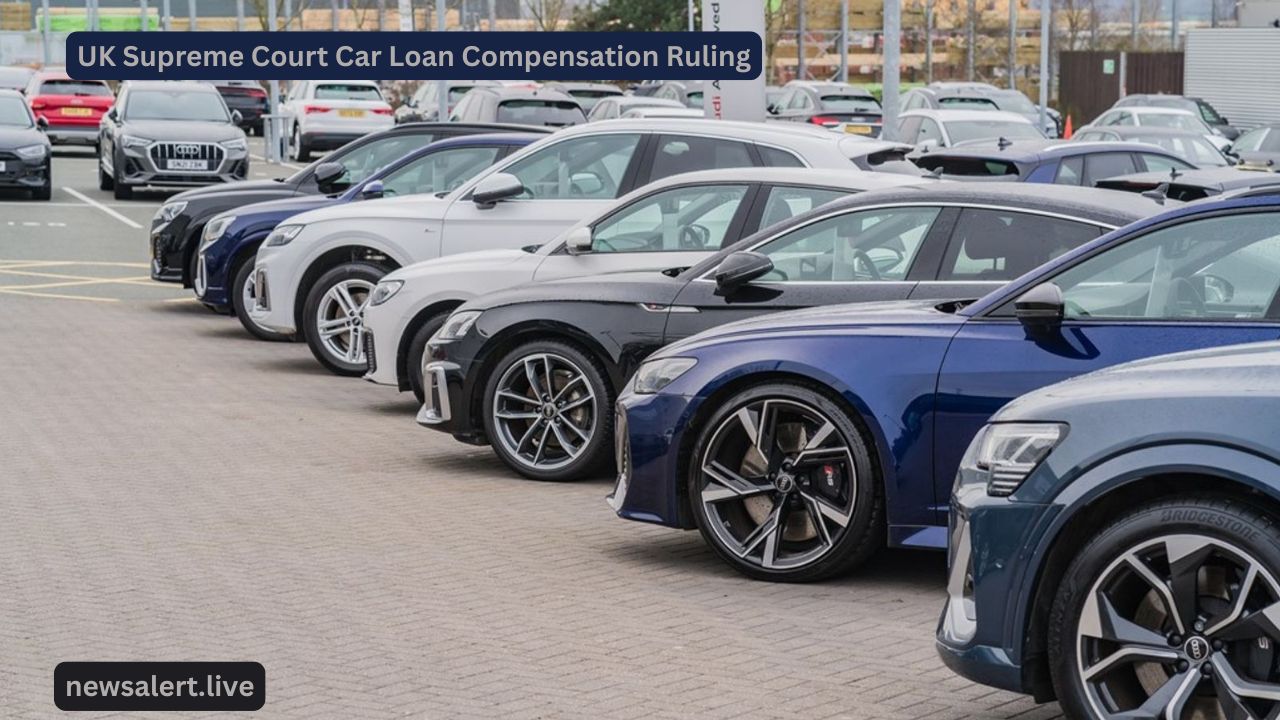The UK Supreme Court car loan compensation ruling has changed the financial landscape for millions. Discover how this decision affects consumers, car finance companies, and global economic factors, including Donald Trump’s tariffs.
UK Supreme Court Car Loan Compensation Ruling: What Happened?
The recent UK Supreme Court car loan compensation ruling has dominated headlines and left millions of consumers wondering if they are entitled to compensation. This case centered on allegations that car dealers, working closely with financial institutions, set interest rates on car loans in a manner that maximized their commissions—often without providing full disclosure to the customer.
The practice, known as discretionary commission arrangements, allowed dealers to adjust the interest rate and profit from the difference. Regulators banned the practice in 2021, but the fallout has continued as consumers fought for compensation for years of unfair charges.
The Supreme Court decision, released in August, significantly narrowed the scope of potential claims. While some consumers will still be able to seek compensation, the ruling prevents a massive wave of payouts that could have reached as high as £50 billion.

What Does the Ruling Mean for Consumers?
At first glance, the UK Supreme Court car loan compensation ruling might seem like a setback for consumers. Previously, appeal court decisions had suggested that any undisclosed commission could form the basis for a claim. The Supreme Court has now made it clear that not all commissions will lead to automatic compensation.
However, there is still hope for those in the most serious cases. Consumers who can prove that they were charged excessive interest rates or misled about the financial product may still be eligible for compensation. The Financial Conduct Authority (FCA) is also considering launching a redress scheme to streamline valid claims.

Why the Treasury Was Concerned
The Treasury feared that a wide-ranging compensation bill could destabilize the banking system. Analysts estimated that lenders might have faced liabilities between £30 and £50 billion if the Supreme Court ruling had favored consumers across the board. This could have reduced banks’ ability to lend money and weakened economic growth.
Chancellor Rachel Reeves was under pressure to step in if the ruling created a systemic risk. Fortunately for the government, the decision eased those concerns and reduced political pressure to intervene.

How Car Dealers and Lenders Are Reacting
Car dealers and lenders have welcomed the ruling, though they are aware that billions in potential claims may still arise from the most egregious cases. The automotive finance industry is already adjusting its practices to ensure transparency and compliance with the FCA’s regulations.
Dealers are now required to disclose commission structures clearly, and discretionary commission arrangements are permanently banned. This creates a safer environment for consumers buying cars on finance today.

Linking Global Economic Shifts: Donald Trump’s Tariffs
Interestingly, the UK Supreme Court car loan compensation ruling is not the only major financial news affecting consumers and businesses. On the same day, former US President Donald Trump’s revised tariffs on imports came into effect, impacting over 70 countries.
Trump’s tariffs aim to reduce America’s trade deficit and bring manufacturing jobs back to the US. Tariff rates now range from 10% to as high as 41% depending on the country, creating uncertainty for exporters and global supply chains.
While the UK secured a 10% tariff rate in its arrangement with the US, other countries like Canada, India, and Germany face harsher penalties. This economic turbulence ties back to consumer markets, as tariffs can increase the cost of imported goods worldwide.

Impact on Global Car Markets
Car manufacturers are particularly vulnerable to tariffs. Germany, home to major car brands, faces a 15% tariff that could reduce its exports to the US. Similarly, Canada is subject to a 35% tariff on certain goods, including vehicles.
For UK consumers, this means that car prices may fluctuate depending on supply chain costs. Lenders and dealers will need to adapt quickly to manage both the aftershocks of the Supreme Court ruling and the ripple effects of global tariffs.

Consumer Advice After the Supreme Court Ruling
If you believe you were affected by discretionary commission arrangements, experts recommend waiting for official guidance from the FCA. Claims management companies are already advertising their services, but they often charge high fees. Consumers may be eligible for free redress through an FCA-approved scheme.
Key steps include:
-
Reviewing your car loan documents carefully
-
Checking if the commission was disclosed
-
Avoiding signing up with third-party claims firms too quickly

How Businesses Can Prepare
For businesses, the UK Supreme Court car loan compensation ruling serves as a reminder of the importance of transparent financial practices. Lenders should ensure that all commission structures are fully disclosed and that interest rates remain fair.
In addition, businesses involved in international trade must factor in new tariffs. Many companies are redesigning supply chains to minimize exposure to high tariff rates and currency volatility.

Global Economic Outlook: Are We in a New Era?
The combination of the UK Supreme Court decision and Trump’s tariffs signals a broader shift toward uncertainty in global markets. Consumers are likely to face higher costs on imported goods, while financial institutions must prepare for stricter regulations and potential compensation schemes.
The effective tariff rate on goods entering the US has risen from 2% earlier this year to between 15% and 17%. Economists warn that this could slow global growth, especially in trade-dependent countries.

Conclusion
The UK Supreme Court car loan compensation ruling has reshaped the legal and financial landscape for millions of UK consumers. While the decision limits the scope of compensation, it ensures that the most serious cases of misconduct will be addressed.
At the same time, global economic shifts like Donald Trump’s tariffs are adding new layers of uncertainty for businesses and consumers alike. The best approach is to stay informed, review your financial agreements carefully, and adapt to changing market conditions.
The coming months will be crucial as regulators like the FCA announce their next steps. For now, consumers should avoid rushing into claims services and instead wait for clear guidance on compensation eligibility.

FAQs
1. Who is eligible for compensation after the UK Supreme Court car loan compensation ruling?
Only consumers who can prove unfair practices or excessive commissions are likely to be eligible. The FCA may launch a redress scheme to clarify eligibility.
2. How do Donald Trump’s tariffs affect UK consumers?
Tariffs can increase the cost of imported goods, which may lead to higher prices on cars and other products.
3. Should I sign up with a claims management company?
Not immediately. These companies charge fees, and the FCA may create a free compensation scheme.
4. Will car prices increase in the UK?
Possibly. Global tariffs and supply chain costs can affect vehicle pricing, especially for imported models.
5. Are discretionary commission arrangements still legal?
No. The FCA banned this practice in 2021.








